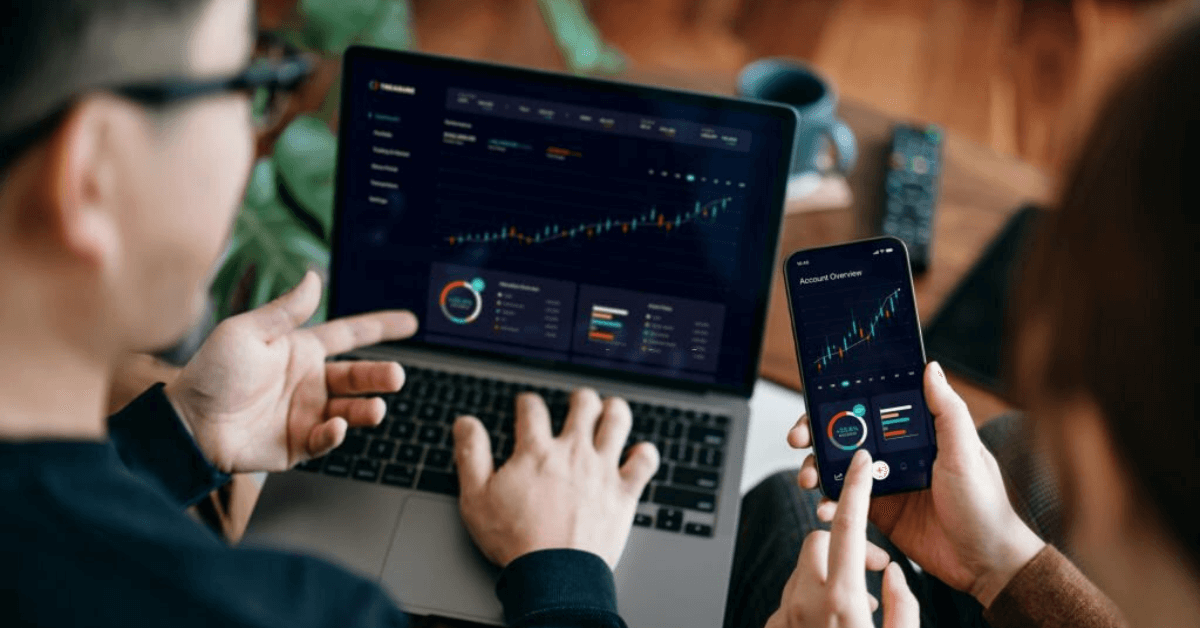How to Find Your Ideal CFD Trading Platform
Discover the essential steps to find your ideal CFD trading platform. Compare features, security, and usability. Make informed decisions for successful trading.
Finding the best CFD trading platform is a pivotal step in your journey as a trader. With numerous options available, each offering different features and capabilities, making the right choice can significantly impact your trading success.
Why the Choice of Trading Platform Matters?
Before we dive into the details, let's understand why selecting the right CFD trading platform is crucial:
● Access to Markets: The platform determines which markets and assets you can trade. Choosing a platform that offers a wide range of CFD instruments ensures you have diverse trading opportunities.
● User Experience: A user-friendly and intuitive interface can enhance your trading experience. The platform should provide efficient order execution and a seamless trading process.
● Advanced Tools: Depending on your trading style, you may need access to advanced charting tools, technical indicators, and risk management features. The platform you choose should align with your requirements.
● Reliability: Platform reliability is vital. You want a platform that can handle high trading volumes, maintain uptime, and execute orders swiftly without glitches.
● Regulation and Security: Ensure the platform is regulated and adheres to industry security standards. Protecting your capital and personal information is paramount.
Types of CFD Trading Platforms
Now, let's explore the different types of CFD trading platforms available:
1. Web-Based Platforms
Web-based platforms are accessible through a web browser without downloading or installing software. They offer several advantages:
1. Accessibility: You can trade from any device with internet access, making them ideal for traders on the go.
2. No Installation: Avoid the hassle of software installation and updates.
3. Cross-Device Compatibility: Most web-based platforms are responsive, adapting to desktops, laptops, tablets, and smartphones.
2. Desktop Platforms
Desktop trading platforms are software applications installed on your computer. They provide more advanced features and are favored by professional and active traders:
1. Performance: Desktop platforms are known for their speed and advanced capabilities, making them suitable for high-frequency trading and complex strategies.
2. Advanced Features: They offer extensive charting tools, technical indicators, and customizable interfaces.
3. Customization: Traders can tailor the platform to their preferences, arranging charts, and integrating third-party plugins.
3. Mobile Trading Apps
Mobile apps are perfect for traders who need to monitor their positions and execute trades away from their computers. They offer a condensed version of the desktop platform's features:
1. On-the-Go Trading: Trade from anywhere with mobile internet access.
2. Simplicity: User-friendly interfaces are suitable for quick trades and monitoring positions.
3. Real-Time Alerts: Stay informed with real-time market data and alerts.
How to Choose the Best CFD Trading Platform?
Now that you understand the types of CFD trading platforms available, here's a step-by-step guide to finding the best one for your needs:
1. Trading Goals and Style
Understanding your trading objectives, risk tolerance, and preferred markets is essential. Your trading style will significantly influence the platform that best suits your needs.
2. User Reviews and Reputation
Seek insights from fellow traders through user reviews and recommendations. Additionally, consider checking review sites. For example, here are detailed reputable and safe CFD brokers along with their platforms. Real-world experiences can provide valuable insights into a platform's performance, reliability, customer support, and overall user satisfaction.
3. Accessibility and Mobility
Consider how and where you intend to trade. If you require flexibility and the ability to trade on the go, prioritize platforms that offer web-based access or mobile apps.
4. Feature Set and Functionality
Evaluate the features offered by a trading platform. Look for essential tools such as advanced charting, technical indicators, order types (e.g., market, limit, stop-loss), and risk management options (e.g., take-profit and trailing stop orders). Ensure the platform aligns with your trading strategy and provides the necessary tools to implement it effectively.
5. Regulatory Compliance and Security
The platform's regulatory status and security measures are paramount. Ensure the platform operates under reputable financial regulations and employs robust security protocols to protect your trading capital and personal information. Regulatory compliance adds an extra layer of safety and transparency to your trading activities.
6. Demo Testing
Many brokers offer demo accounts that allow you to test a platform's features and usability with virtual funds. Take advantage of these opportunities to gain firsthand experience and ensure that the platform meets your expectations before committing to real capital.
7. Cost Analysis and Fees
Consider the overall cost of trading, including spreads, commissions, and overnight financing fees (swap rates). These fees can impact your profitability, so it's essential to understand how they apply to your trading style and the assets you intend to trade. Transparent fee structures are preferable, allowing you to assess costs accurately.
The Bottom Line
Choosing the best CFD trading platform is a crucial decision for traders of all levels. Your platform will influence your trading experience, so take the time to evaluate your options and select the one that aligns with your goals, style, and preferences. Whether you opt for a web-based, desktop, mobile, or specialized platform, make an informed choice to set yourself up for trading success.

Subscribe & get all related Blog notification.





Post your comment